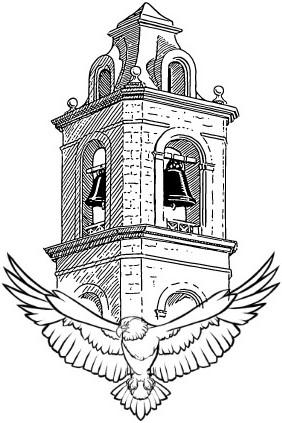
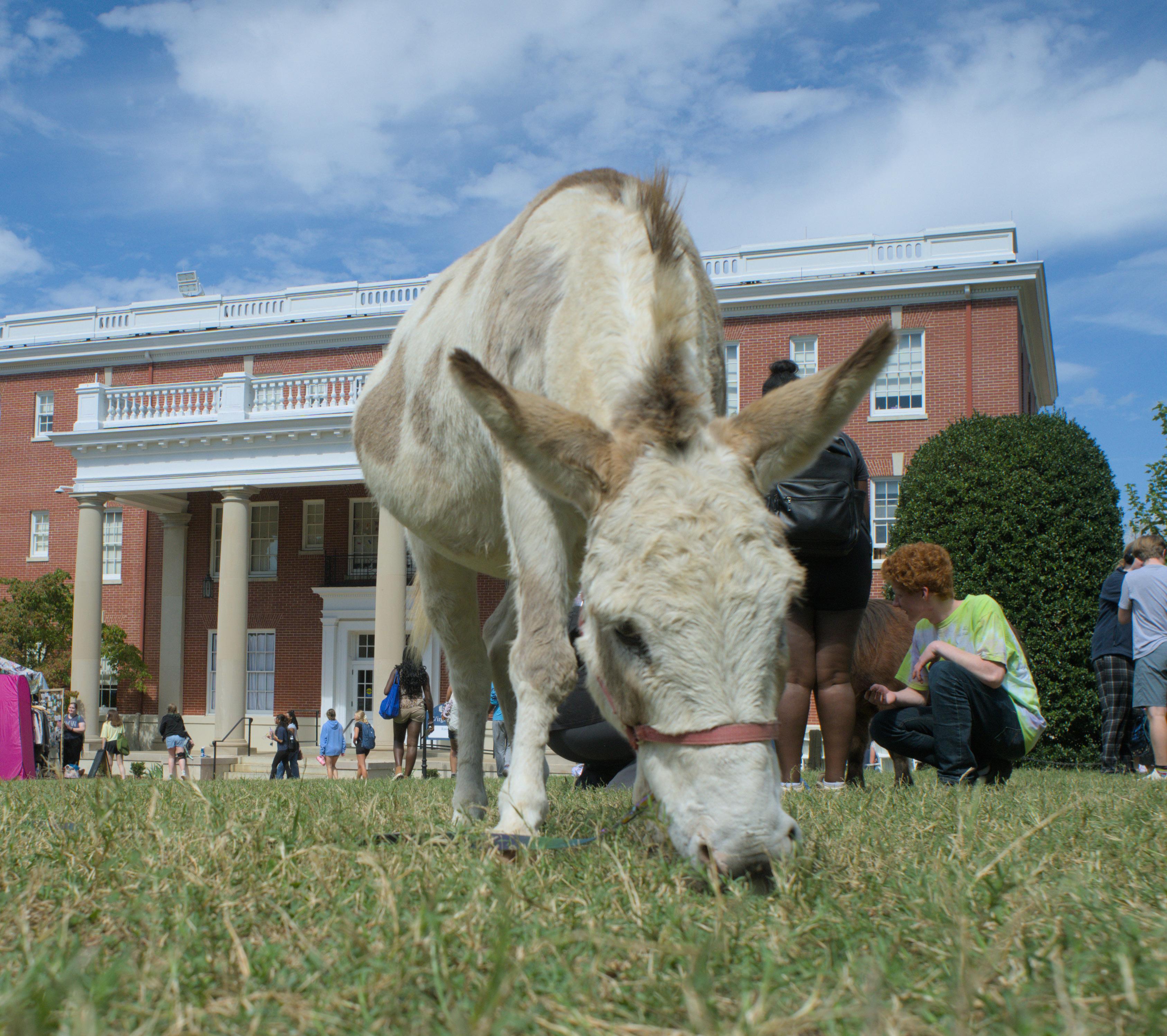
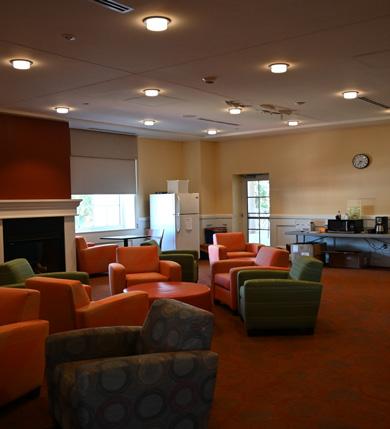
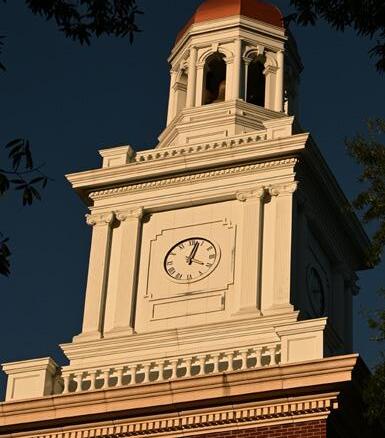







Editor-in-Chief
Callie Harkins
Executive Editor
Stoneman says UMW discussed incorporating sustainable energy practices on campus in the past, but those plans fell through.
weeklyringer.executive@gmail.com
Associate Editors
Emma Kingkeo
Grace Wagner
Thomas Jackson
News Editor Ky Huynh
Meaghan Van Dyke
Opinion Editor
Ella Cordle
Life Editor
Chloe McCann
Sports Editor Enya Cea-Lavin
Online Editor Sophia Tompkins
weeklyringer.opinion@gmail.com weeklyringer.news@gmail.com weeklyringer.associate@gmail.com
weeklyringer.online@gmail.com weeklyringer.sports@gmail.com weeklyringer.life@gmail.com
Photography Editors
Anna Goodman
Violet Ayers
weeklyringer.photos@gmail.com
Copy Editor
Kyra Donlon weeklyringer.copy@gmail.com
Faculty Advisor
Sushma Subramanian
weeklyringer.eic@gmail.com ssubrama@umw.edu
Corrections
Please report any corrections to Callie Harkins at weeklyringer.eic@gmail.com or Sushma Subramanian at ssubrama@umw.edu
Advertisement
Please direct all advertising inquiries to Callie Harkins at weeklyringer.eic@gmail.com.
Bell tower logo designed by Bernadette D’Auria ‘22
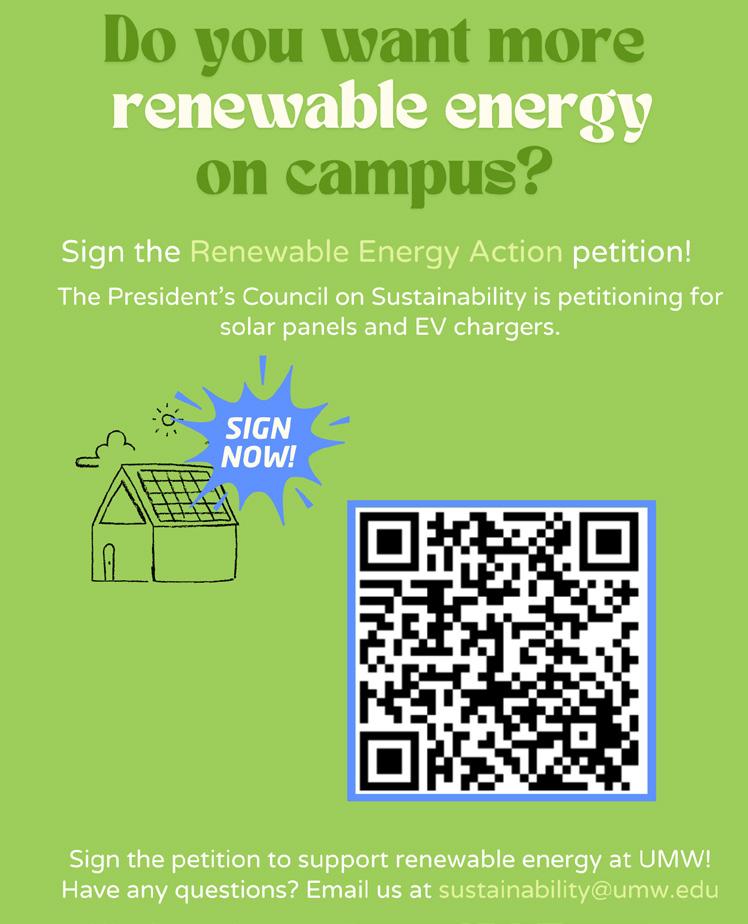
KATIE CRADDOCK Staff Writer
The UMW President’s Council of Sustainability is circulating a Renewable Energy Action Petition to encourage the installation of solar panels and increase the number of electric vehicle chargers on the Fredericksburg campus. While nearby public institutions like Germanna Community College and the College of William and Mary are implementing renewable energy programs, including solar panels, UMW has yet to follow suit.
“We wanted to show the administration, the Board of Visitors, the President, that the UMW community wants to see sustainable action and wants to see renewable energy on campus,” said Kate Stoneman, a senior environmental science major and co-chair of the President’s Council of Sustainability. “We’re doing that through the petition and showing that these signatures mean that the UMW community cares about the environment.”
“We wanted to show the administration, the Board of Visitors, the President, that the UMW community wants to see sustainable action.”
- Kate Stoneman
The PCS was established in 2009 and consists of students, faculty and staff dedicated to the effective implementation of sustainability efforts at UMW.
“One of our goals is renewable energy, and particularly that we want rooftop solar on our campus,” said Associate Professor of Earth and Environmental Sciences and PCS Co-Chair Pamela Grothe.
“We got to a point where there was actually a company looking at the school and evaluating all of the buildings to see where solar panels could be put,” said Stoneman. Multiple buildings on campus, such as the Anderson Center, Goolrick Hall, Woodard Hall and the Simpson Library, were identified as compatible with solar panels.
“It got shut down, and it hasn’t been talked about since,” said Stoneman. “And so I was getting somewhat frustrated with the fact that that wasn’t being moved forward.”
As institutions across the Commonwealth adopt sustainable practices, Grothe says UMW has the opportunity to emerge as a leader if the university were to implement renewable energy on campus.
“It’s part about the appearance that we should be leaders as a public university. We should be the leaders in the community, showing that this is what needs to be done,” said Grothe. “It makes a statement. It shows both prospective students and current students that we are serious about these issues, that this is important, that we want to be leading the way.”
An article published by the FXBG Advance notes that on a recent Regional Solar on Schools Report Card, UMW received a grade of “Unsatisfactory Progress,” meaning the university lags behind other public school systems in the greater Fredericksburg area.
“I was just reading an article from Fredericksburg Advance, and it literally says, ‘University of Mary Washington currently has no plans for solar,’” said Grothe. “We are being called out in the local newspaper for not doing anything for it.”
Grothe says failure to take action on this issue also has the potential to affect recruitment of prospective students.
“I think it’s going to ultimately affect prospective students’ decisions to come to Mary Washington, because they’re going to see that we’re not serious about these issues,” she said. “Why are they going to want to come to a university that seemingly doesn’t care about climate change?”
Some students, including Abbey Fielder, a senior environmental science major, are passionate about sustainability on campus and hope the petition will encourage UMW administrators to take action.
“I think with this petition the school will realize that we do actually notice and care about sustainability and environmental health,” said Fielder. “It makes for a much more protected/guaranteed future in terms of keeping up with energy demand as well as protecting biodiversity and the health of the environment.”
For practical solar panel installation,
PCS recommends utilizing a Power Purchase Agreement, which is a solution more financially manageable for the university. In this agreement, the solar company would pay for the solar panels and installation, and UMW would buy the renewable electricity back at a reduced rate.
“In the long run, we would save money through that process, and then we don’t have to worry about the maintenance on the solar panels, because we don’t own them,” said Grothe, about the agreement.
Stoneman says PCS hopes to get 500 signatures before bringing the petition to the UMW administration.
“Why are they going to want to come to a university that seemingly doesn’t care about climate change?”
- Pamela Grothe
“We can’t show it to the administration or the president until we get a certain amount of signatures,” said Stoneman. “300 signatures isn’t necessarily enough, which is why we were kind of reaching for 500 at least.”
Moving towards sustainability doesn’t just mean solar panels; PCS has other ideas that would reduce overall energy usage on campus, as well as promote sustainability. Potential proposals include installing LED lights and putting stronger envelopes—the barriers between internal and external enviornments—around some of UMW’s older buildings.
“One way that we reduce our carbon footprint is not only to move to renewables, but reduce our overall energy usage,” said Grothe.
The main difficulty with these initiatives, according to Fielder, is the lack of funding.
“I think UMW tries to promote sustainability but the sustainability department lacks participation and funding so many of their initiatives fall through,” she said.
Stoneman also commented on how the influence of PCS is constrained by the lack of budget.
“In terms of money, the Office of Sustainability has a very small budget. We have no budget, so we don’t have much influence,” Stoneman said. “And so getting the student body involved, brings a lot more to the table in terms of sustainability.”
Even with limited funding, PCS leaders believe the petition, along with student voices, can create change.
“We should be leading the way and setting an example, and we’re not,” said Grothe. “We’re falling behind.”
ZAHRAA MOHAMMED Staff Writer
The University of Mary Washington campus has plenty of public spaces for both on and off-campus students to work together and connect with each other. These spaces are especially important for commuter students, who have fewer opportunities to engage with campus life and no dorm room to return to between classes. Having a commuter lounge is essential to accommodating off-campus students’ needs, but UMW’s current designated commuter space limits the campus experience and fails to contribute adequately to off-campus students’ time here at the university.
Students live off-campus for a variety of reasons and should not be penalized with a challenging or even unwelcoming on-campus experience. It’s not enough for commuters to be allowed into public spaces on campus. It’s important for them to have their own comfortable space to meet others with similar experiences and build a community.
“Sitting in the same open area for hours isn’t ideal, and without a meal plan, many common spaces feel inaccessible since they revolve around food purchases,” said Hana Abed, a junior commuter student majoring in elementary education. “Unlike students in dorms or apartments, commuters don’t have private spaces where we can comfortably spread out, eat lunch or work without being in the middle of constant activity.”
“It’s not enough for commuters to be allowed into public spaces on campus. It’s important for them to have their own comfortable space to meet others with similar experiences and build a community.”
- Zahraa Mohammed
When commuter students have large gaps in their schedule, it doesn’t always make sense to go back home. Having a lounge with better amenities would facilitate these waiting periods. Additionally, there are public spac-

It’s important for off-campus students to have a comfortable place on campus exclusive to them. Anna Goodman / The
es on campus like the Simpson Library and Hurley Convergence Center that commuter students are welcome to utilize, but don’t have the same impact as an exclusive, updated space designed with these students in mind.
As advertised on the Off-Campus Student Services FAQs page on the UMW website, there is a designated commuter lounge on the fourth floor of the CRUC. The description listed reads, “equipped with couches, chairs, tables, a microwave, and other amenities.” However, some students find the space uninviting and unhelpful.
“I tried the commuter lounge once, but it wasn’t inviting or thoughtfully designed. It felt like more of an afterthought than a true student space,” Abed said.
On the other hand, some students don’t expect much out of the lounge itself.
“I come here between classes, get some work done. It’s pretty chill, I can’t expect a lot,” said Kevin Tuffor, a junior business administration major who commutes to campus.
The Link, which is located between Mason and Ran-
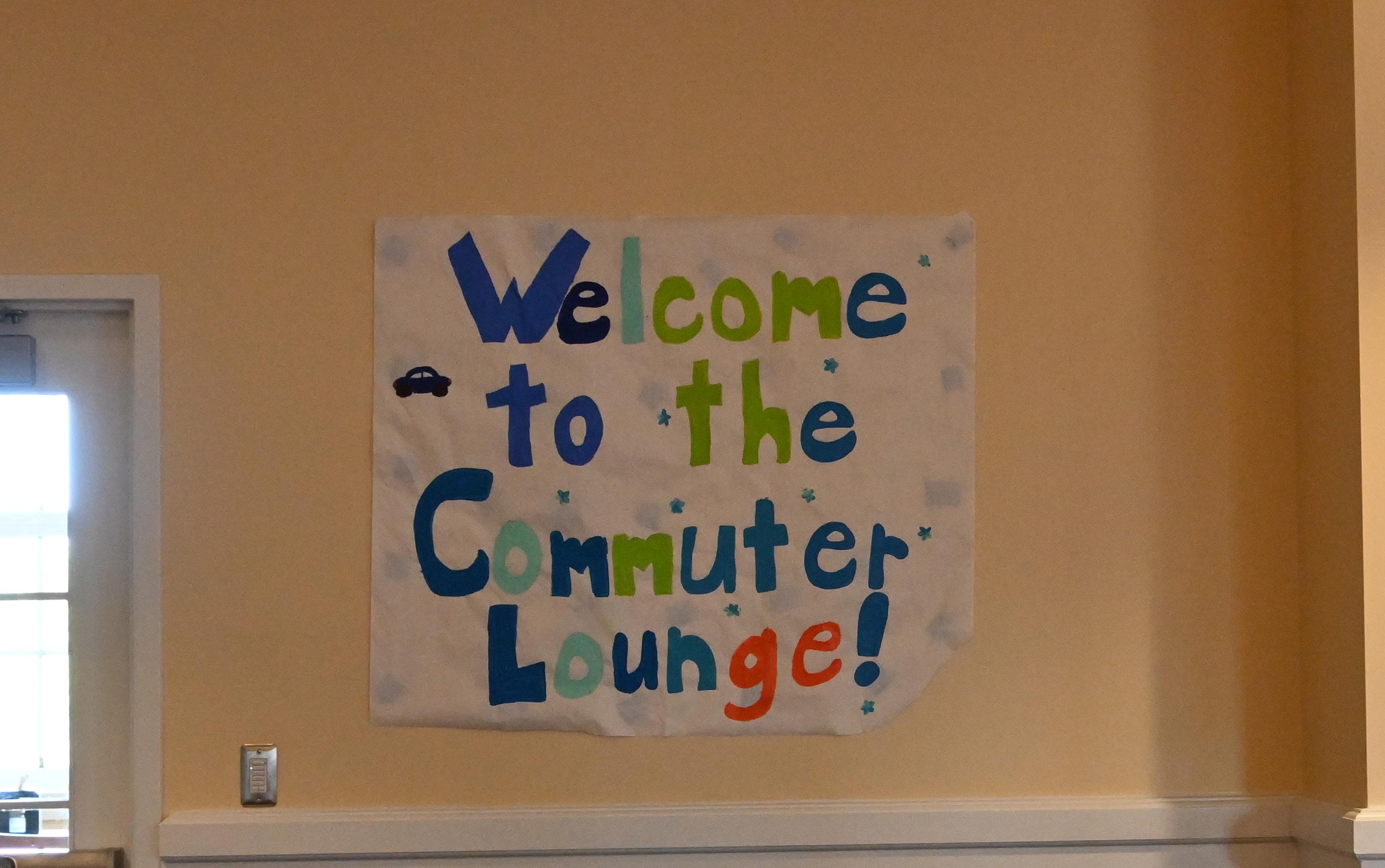
dolph Hall, is also advertised as a space for commuters. However, it’s currently home to the Office of Undergraduate Admissions Welcome Center, so finding a place to relax can be difficult.
“Commuters don’t have private spaces where we can comfortably spread out, eat lunch or work without being in the middle of constant activity.”
- Hana Abed
Unfortunately, in the 2022-2023 academic year, the dedicated space for commuters on the third floor of the CRUC, called the Talon Lounge, was cleared and turned into the E-Sport Arena. This previous space created a much more inviting environment compared to the current lounge on the fourth floor. It was spacious and away from University Center activity. If anything, the current lounge feels like a shell of the previous space.
For one, the old lounge had more windows, seating options, a community board and students that actually wanted to use it. Most importantly, it wasn’t directly adjacent to the commotion of the dining hall.
Placing it next to the dining hall might have made it a designated lunch spot, however, commuters seem to need more than just a place to eat on campus, they need a place to build community and decompress.
When asked whether there are any plans in the future to renovate or relocate the commuter space, Assistant Dean of Students CJ Porter shared that she is always seeking improvements.
“I’m always considering ways to improve the off-campus space,” Porter said. “Right now space on campus is at a premium – hard to come by, especially when you consider it needs to have lockers, a refrigerator, a television and a microwave.”
It’s important to make commuter students feel like they belong and that their experience on campus is important. Having a space dedicated to facilitating their experience and getting them connected is a key part in ensuring that.
CADEN VELAZQUEZ Staff Writer
At first glance, the movie “Weapons,” directed by Zach Cregger, dives into a strange and chilling non-linear story told from the perspectives of multiple characters.
At first glance, I was rather confused by the premise of the film and even by watching the trailer. I expected it to be more on the straightforward supernatural side of horror, but it turned out to be more on the side of a non-linear story usually associated with Quentin Tarantino movies like “Reservoir Dogs” or “Pulp Fiction,” where it’s purposely told out of order, but still relates to one main plot point.
From a visual standpoint, I thought the movie had incredible production value. The shots of the school and multiple drone shots of the many houses seen throughout the movie are very well put together.
However, with a $38 million production budget, I was slightly disappointed that a few more shots weren’t properly lit, as scenes involving the main house seemed very dull and lifeless. Which can be an easy tactic to induce fear, but this can all depend on the mood of the viewer.

The plot was quite confusing upon first watch as it’s told out of order by multiple characters who all happen to be involved in the story, but to summarize, the movie concerns a classroom of 18 children who at 2:17 a.m. one night got out of bed, opened the front door and disappeared into the night.
All but one child remains, a young boy named Alex Lily, who appears unaware of what occurred. This leads to eventual personal attacks directed at the missing student’s teacher, Justine Gandy, by the parents of the children.
Thematically, the movie takes on a very similar setting to many Stephen King and David Cronenberg movies in that it takes place in a small town where there aren’t many main characters or many places to remember for later. I praise the movie for that, as it would take the audience’s attention away from understanding the plot and making sense of said plot.
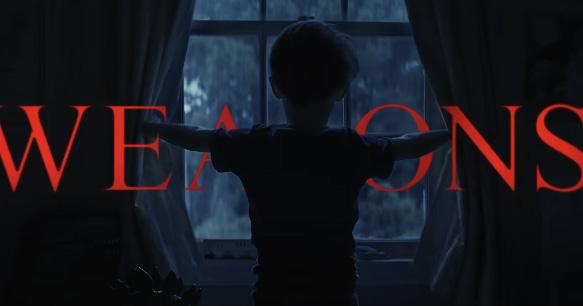
There’s not much graphic violence in this movie, which was the most shocking to me because the movie is rated R and recent horror movies such as such as “The Mouse Trap” (2024), “Terrifier 3” (2024) or “Evil Dead Rise” (2023) seem to rely on gore and shock value to make audiences shudder instead of relying on narrative and emotion.
For me, this movie felt like a horror version of “Pulp Fiction” in that it’s told from the perspective of multiple characters with the intent of telling one whole story but from different character viewpoints.
I praise the movie for its diverse taste in structure as I can only name four horror movies with the same “multiple perspective” style, which would be “Creepshow” (1982), “The Willies” (1990), “Lost Highway” (1997) and “eXistenZ” (1999). It is refreshing to see that this rarity of horror movies can still be produced.
Another point of interest I’d praise is most certainly the music score, which doesn’t rely heavily on shrieking violin noises to cue to the audience that someone’s going to die.
Instead, the movie does the old trope of relying on atmosphere and buildup with limited music, which is a very nice reference to early slasher films such as “Black Christmas” (1974) or “Deep Red” (1975). I also noticed the movie has a few bits and pieces of comedy horror alluding to “Evil Dead 2” (1987), which made me laugh quite a few times.
There were a few things I didn’t like about the movie, with the first being its runtime of two hours and eight minutes. In my own experience, supernatural or mystery movies for that matter, should be told within 100-110 minutes but no longer than that.
Understandably, “Creepshow” was also two hours and had three different stories to tell all within one plot, but “Weapons” to me didn’t seem like it required six different stories to tell within those two hours, as I felt it was simply cramming those stories to tell one because most felt they lasted only 20 minutes each.
Given that there are very few main characters in this movie, it would leave the audience confused as to why it kept repeating what we already know about said characters. In other words, it would’ve been better if the movie were straightforward and focused on Justine and how she’d figure out how to track her missing students.
To tie this all together for UMW students, I say it’s the perfect time to view “Weapons” since autumn is already upon us and what better time to sit in from the cold air and watch a scary movie or two.
I’d recommend this highly not only to those who like horror movies, but those who enjoy a great mystery story and enjoy piecing together the many different perspectives to draw a conclusive conclusion.


“I have heard of so many weirdly specific superstitions here,” said junior religious studies and physical therapy double major, Theresa Oetgen. “The most famous one has to be the cursed seal in Farmer.”
UMW legend has it that if you step on the seal in the main entryway of James Farmer Hall, you won’t graduate on time. The more cynical believers say you won’t graduate at all.
“I see people step on the seal all the time and I can’t imagine everyone’s graduation is getting delayed,” said Coni Vigna, a junior marketing and communication and digital studies double major. “But still, I would never do it myself.”
While superstition and tradition can be linked, and UMW is rich in both, they are quite different in their own right.
“Traditions are activities that are passed down that have meaning. Superstitions are activities that are designed to provoke a favorable response,” said religious studies professor Mary Beth Mathews. “It’s got intrinsic value to it, whereas traditions like Eagle Gathering or the way that we do honor convocation, those are meaningful in their own right, but don’t necessarily carry a punishment or reward.”
A well-known tradition at UMW is to jump in the fountain outside of Monroe Hall before you graduate. While this seems like a simple Mary Wash custom, many students have looped in their own superstitions to this soggy ritual.
“In my friend group, we jump in once a year to ensure the effects don’t wear off,” said junior political science and English double major Allie Schwartz. “I don’t really know what the effects are, but at this point we just have to keep it up.”
Brompton House is the official home of UMW’s president, Troy Paino, but in its past, it served as Union Hospital during the Battle of the Wilderness in 1864, according to the University of Mary Washington website. A famous picture of the house during that time shows soldiers’ severed limbs piled under a tree that still stands to this day, leading many locals to believe that the tree limbs resemble the body parts left there.
Other haunted hot spots on campus are older residence halls like Westmoreland, Virginia and Willard Hall.
“I lived in Westmoreland Hall my freshman year and there would be doors that would randomly shut and I had friends there who told me about objects being moved when no one was near them,” said junior communication and digital studies major Olivia Kern. “It honestly really freaked me out, so I am glad I don’t live there anymore.”
Would you consider yourself a superstitious person? Well, at Mary Washington, you might not have much of a choice.
UMW’s campus is riddled with superstitions and traditions for students to sink their teeth into. From the somewhat cursed crest in James Farmer Hall to the nearly cult-like Eagle Gathering, these superstitions and traditions are hard to escape.
While many traditions and superstitions here can be lighthearted, some others can be a bit spooky.
It may not be talked about very often on campus, but Fredericksburg is filled with ghost sightings. The city dates back to the early 1700s and was home to a number of Civil War battles during the 1800s, leaving many locals to believe that the city is haunted.
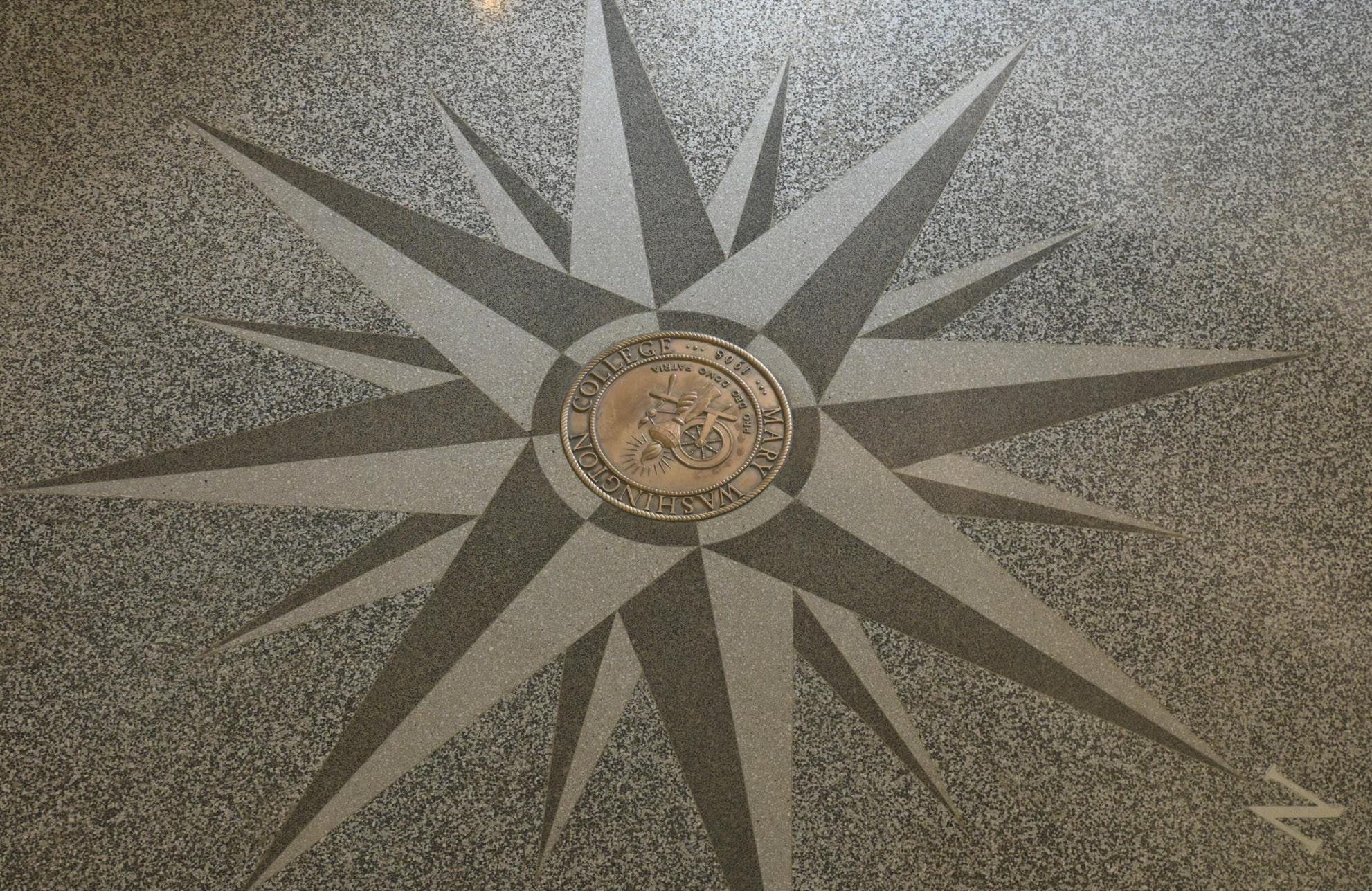
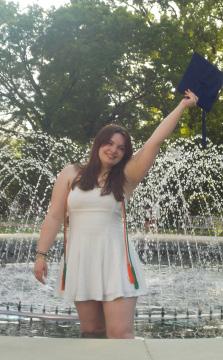
Being the oldest residences at UMW, dating back to 1911, these buildings are hosts to the most ghost sightings on campus.
Spookiness aside, these superstitions and traditions are a part of UMW’s culture and no matter how lighthearted they are, they still hold meaning.
“I think the superstitions are important to UMW because we’re such a tight-knit community,” said Vigna. “The superstitions and traditions are similar to inside jokes in a friend group. We bond over the superstitions, too.”
No matter if you believe in any of these UMW customs, they are still a part of your time here.
“These things bring us closer together as a community,” said Lily Hoffman, a junior environmental sustainability and policy major. “It gives us something to remember as alumni and traditions can be one of the things we re-
best.”
ENYA CEA-LEVIN AND VIOLET AYERS
Sports Editor and Photo Editor
The Intercollegiate Tennis Association Division III Women’s Southeast Regional Championship took place at UMW on Sept. 27 through Sept. 29. Both the indoor and outdoor courts were jam-packed with competitions between 24 teams and 153 individual players.
The tournament consisted of two sets of matches, one for amateur players, the B flights, and one for more advanced players. UMW junior biology major Addison Felts competed in the tournament, making it to the 16th round in the singles bracket, as did freshman Izzy Rotaru. In the B flight, junior biomedical sciences major Abiela Wang and senior business major Madison McCarty made it to the finals in the B3 singles bracket.
The biggest tournament of the season marked the end of the fall 2025 competitive schedule. Inclement weather forced the competition to move indoors on the first day, but the Eagles were not deterred, giving a performance that was worthy of the end of their matches for this semester.
The championships ended with two doubles bracket Johns Hopkins University teams in the finals and Carnegie Mellon University in the singles bracket.
SEE TENNIS, PAGE 8
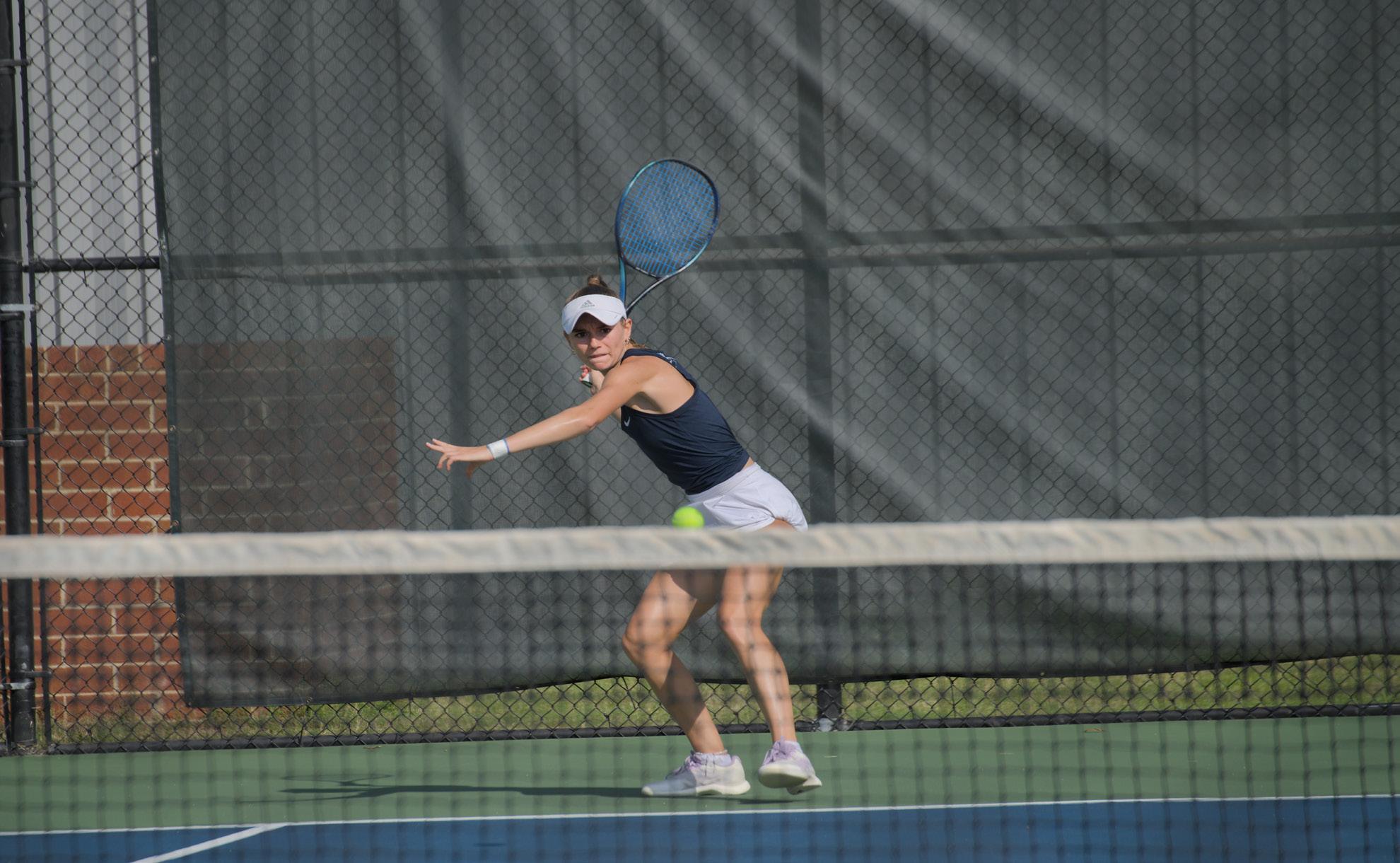
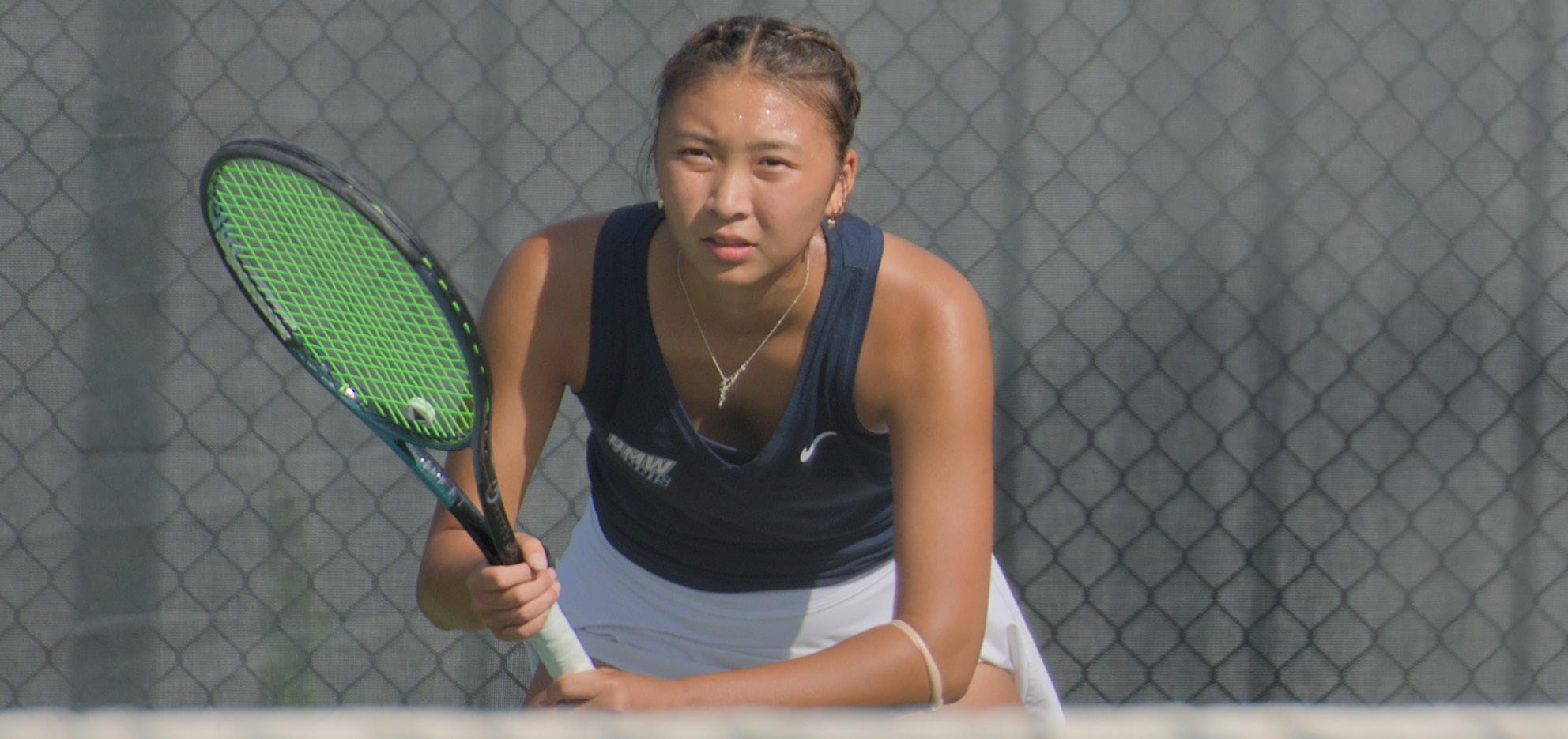
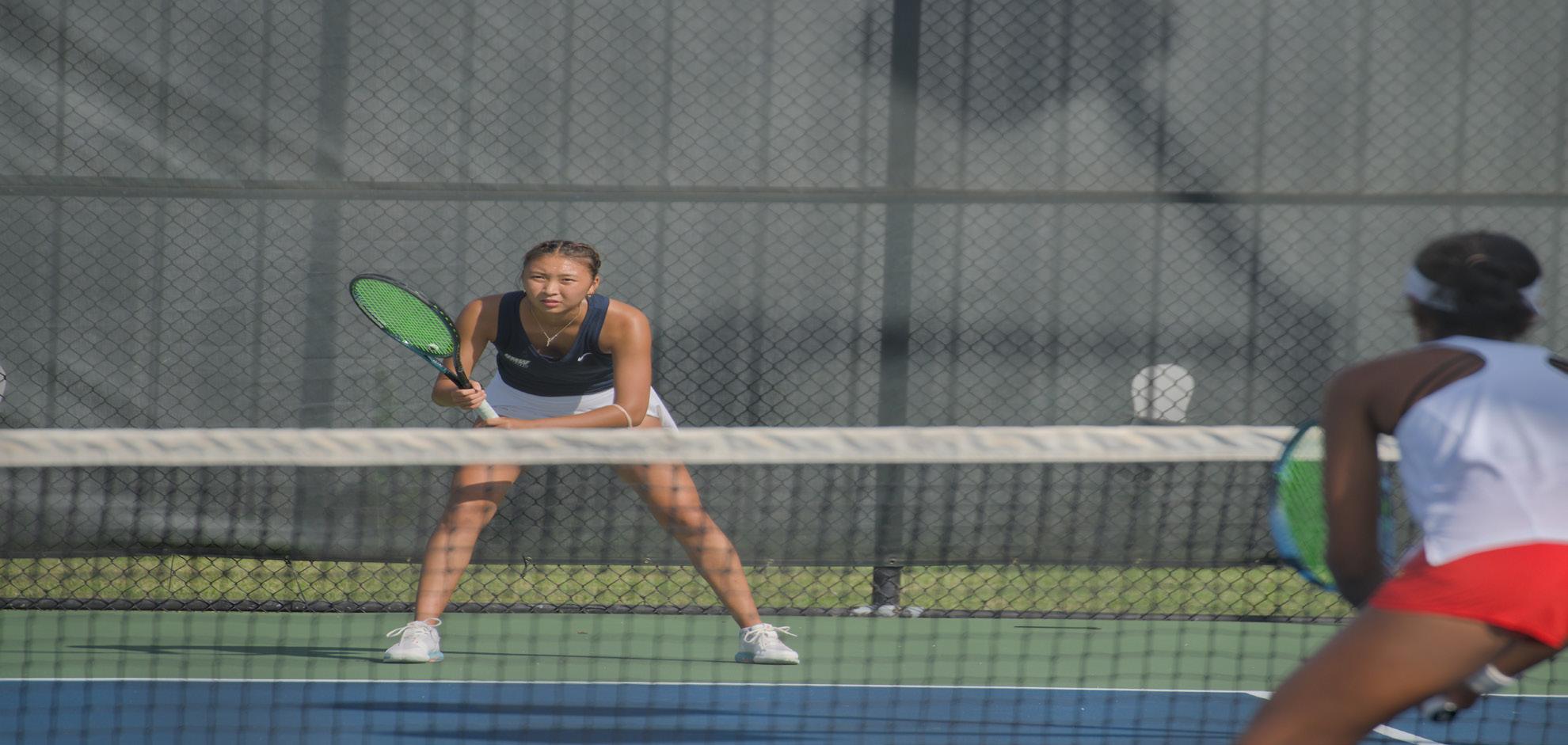
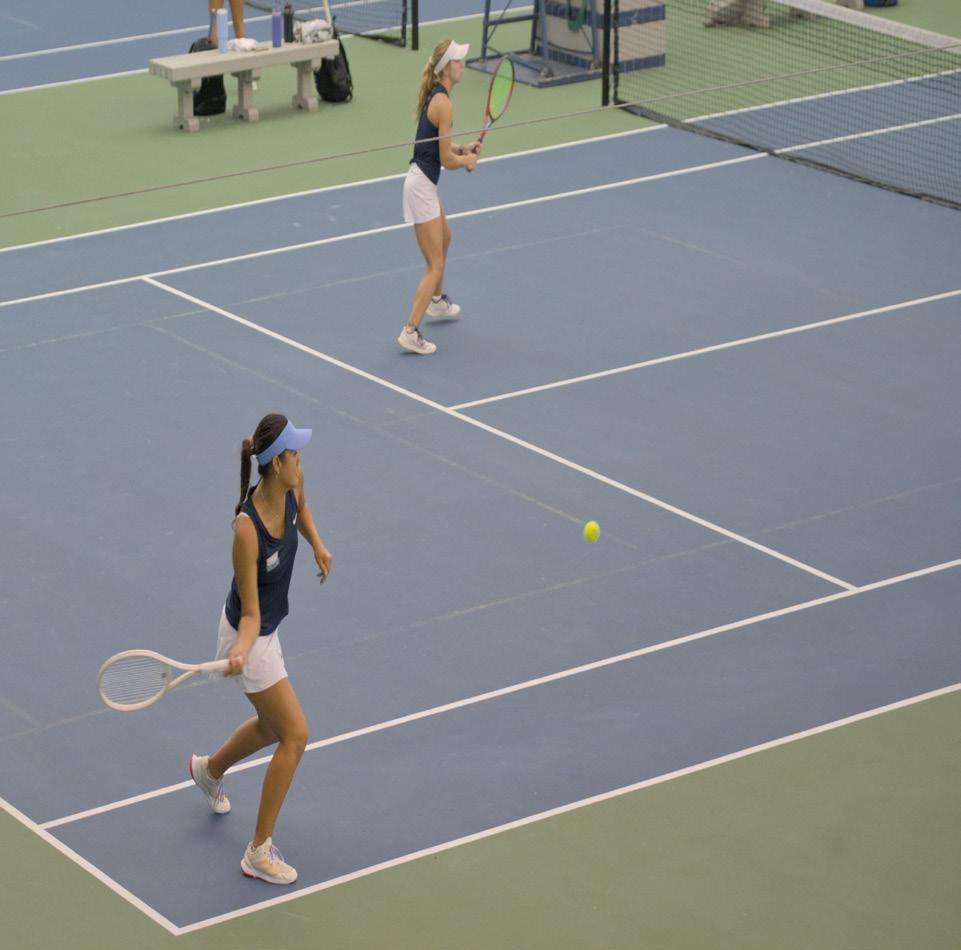


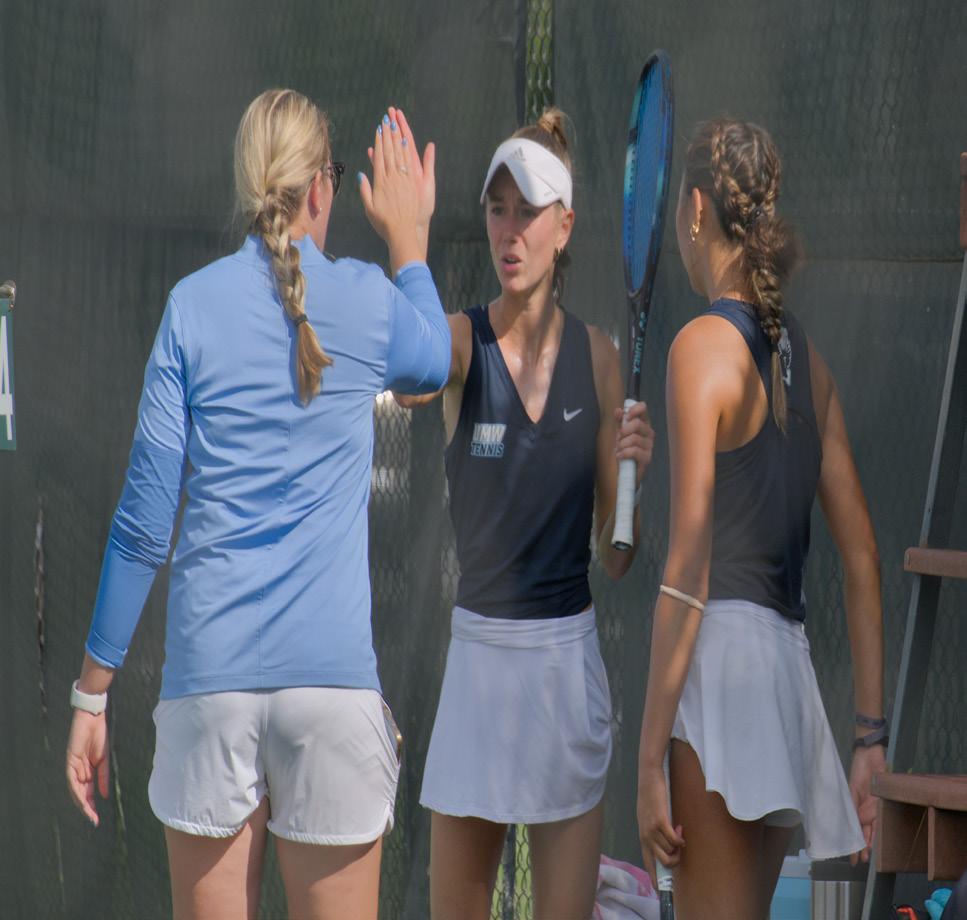
MEAGHAN VAN DYKE News Editor
DINAH MCKEMIE Staff Writer
The Office of Academic Services has discontinued its Peer Academic Consultant program, replacing the student consultants with Kelly Woodson, a full-time Student Success Coach, to cover their services.
Fondling
On Aug. 30, at night, there was a case of fondling at Jefferson Hall. This case was referred to the Talley Center.
“Based on the evolving academic support needs of our students, it was determined that a professional student success coach would be a greater benefit for the university community,” said Wes Hillyard, dean for Academic Success and Integrity.
“I
need someone to break it down in a less professional way. I feel like a peer does that rather than a professional.”
- Cameron Gittings
On Sept. 3, a case of stalking was reported. This case was referred to Title IX.
On Sept. 10 and Sept. 22 at 10:00 a.m., there was a case of larceny of cash at University Dining. This case is pending.
Prior to this year, students seeking assistance with test preparation, study strategies and time management skills could turn to the Peer Academic Consultants. There, student consultants provided personalized academic advice and one-on-one assistance.
“I used the Peer Academic Consultant services my freshman year when I was struggling to adjust to college and stay organized,” said junior creative writing major Hannah Holstrom.
Holstrom continued, “[the consultant] gave me tips based on her own experiences in college, which made me a little less anxious about starting the semester in a completely new environment.”
“Sometimes I have a peer do it and I’m like, ‘oh, I wish you really knew what you were talking about.”
-Emma Lehman
However, this model was phased out at the end of last semester.
“The coach is trained to support students on executive functioning skills that will support their academic success inside and outside of the classroom,” said Hillyard.
According to Hillyard, students seeking an appointment with Woodson must first get a referral through the Office of Academic Services, the Office of Disability Services or the Dean of Students’ office. She will then contact the student directly through their UMW email to schedule an intake meeting. Students started being directed to referrals in mid-September.
“[S]tudents should expect a one-on-one meeting with me in which we identify areas of strength and weakness in their executive functioning skills and develop an action plan for helping them improve,” Woodson said.
Previous student employees who were working as Peer Academic Consultants were notified of the staffing change in the Spring 2025 semester. However, Hillyard says UMW hopes to reintroduce peer consultants in the future.
“It is our hope that in the future, we may be able to reinstate some of the Peer Academic Consultant positions within our new model to work with the Student Success Coach on campus outreach, programming, and peer-topeer support,” he said.
Some students, such as senior nursing major Elizabeth McKeown, say that getting academic help from a professional may deter students from seeking academic support services.
“Adults can be intimidating, and you’re more likely to open up to someone your own age,” she said.
Junior psychology major Cameron Gittings prefers peer advice as well.
“It is our hope that in the future, we may be able to reinstate some of the Peer Academic Consultant positions within our new model.”
- Wes Hillyard
“I need someone to break it down in a less professional way,” Gittings said, “and I feel like a peer does that rather than a professional.”
Senior theatre and conservation biology double major Emma Lehman echoes this sentiment, but acknowledges that advice from peers can be hit-or-miss.
“I feel it’s easier to be more honest [with a peer] about what you need,” Lehman said, “but sometimes I have a peer do it and I’m like, ‘oh, I wish you really knew what you were talking about.’”
Holstrom weighs the costs and benefits as well.
“I think it would be nice to be helped by professionals, but I wish that PACs were still around as well for students to get peer perspectives on issues,” she said.
According to Leah Schweitzer, director of the Speaking and Writing Center, other services provided by student consultants, including the SWC, are unaffected by this staff change.
“There is no plan for professional consultants to be hired in the SWC, either to supplement or replace our peer consultants,” said Schweitzer.
Students seeking subject tutoring should refer to their individual academic departments for more information.
On Sept. 28 and Sept. 30 at 9:12 p.m., there was a case of computer fraud at UMWPDH. This case is pending.

FROM TENNIS, PAGE 6
This past weekend, from Sept. 27 to Sept. 29, UMW hosted the Intercollegiate Tennis Association Division III Women’s Southeast Regional Championships to close out their fall 2025 season.
One of the biggest tournaments of the year for the Mary Washington Eagles, the Championships hosted 153 players, 16 of which were UMW players. Given the sheer size of the competition, the pre-tournament nerves hit a few players ahead of their first match, but excitement outweighed any amxiety.
“Heading into the tournament, I felt a mix of nerves and excitement,” said junior biology major Addison Felts. “This is the biggest tournament of the fall season, so I always aim to perform at my best, especially when we are playing at home.”
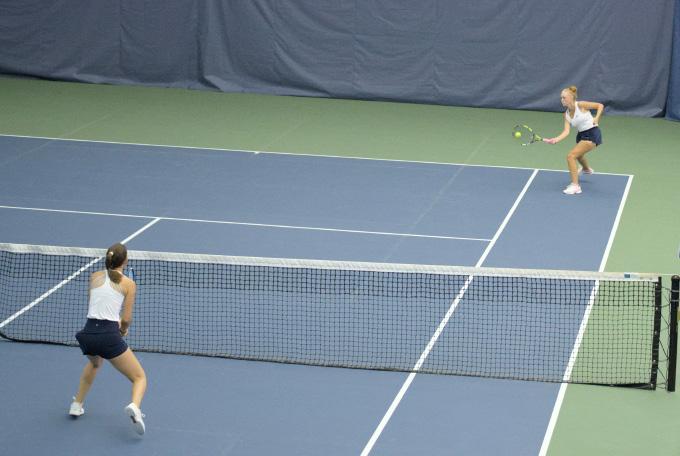
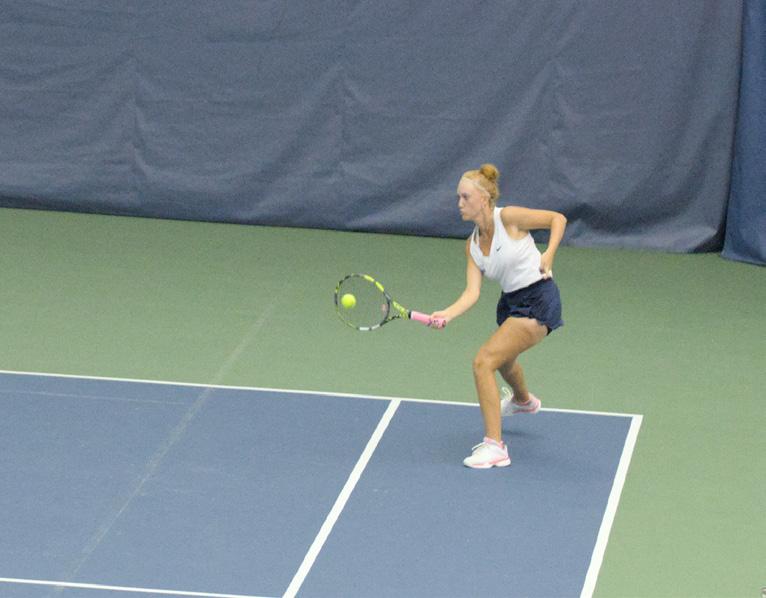
The tournament was held at the University Tennis Center, but was pushed indoors on Saturday due to inclement weather. This cut down the tennis complexes’ 18 courts to just six indoor courts that required the use of a shortened score format for some matches to accommodate the volume of competitors. Despite these initial setbacks, the Eagles still gave a worthy performance.
“We have had some great wins as individuals and doubles teams and as a coach, it is very exciting to see,” said Alexandra Covington, the head women’s tennis coach at UMW.
At the tournament, Felts and her doubles partner, sophomore Natalie Kim, were able to make it to the quarterfinals of the doubles bracket for their second year in a row. The pair won their first few matches, but ultimately met defeat in a close match against students from Carnegie Mellon University.
“We played with great energy—we stayed on our toes, pumped up and fully focused,” said Kim. “We consistently looked to take control at the net and attack whenever we had the opportunity. Our goal was to play with no hesitation, staying alert and ready to finish points when the chance presented itself.”
Felts agreed, knowing her partner and her playstyle, they can work on shots that complement each other.
“Throughout our time playing together, my partner and I have been working to un-


derstand how to keep the momentum when we are up in the set,” Felts said. “By staying highly active at the net, committing to our shots at the baseline, and having a positive attitude, build each other up, not break each other down, we have found a good dynamic that allows us to perform at our best on match days.”
In addition to her performance in the doubles bracket, Felts was able to make it to the 16th round of the championship singles bracket, along with freshman Izzy Rotaru. In the B flights, a different set of matches for more amateur players, junior biomedical sciences major Abiela Wang and senior business major Madison McCarty were able to make it to the doubles final. McCarty also made it to the finals in the B3 singles bracket.
The championship doubles bracket ultimately culminated in two teams from Johns Hopkins University meeting in the finals, while the singles bracket was won by a player from Carnegie Mellon University.
As their fall season comes to a close, the Eagles will start to prepare for the spring. For players like Felts, the preparation began before the final match even ended.
“Overall, I feel like I performed well and was able [to] learn more about myself as a player,” she said. “Going into the off season, I now have a clear understanding of what I need to improve and a plan for how to achieve those goals before spring.”
“We have had some great wins as individuals and double teams and as a coach, it is very exciting to see.”
- Alexandra Covington
UMW players will keep improving their skills in preparation for their next matches.
“We have a motto for the team and it is ‘1% better every day.’ Everything we do throughout the year is to try and get a little bit better,” Covington said. “Often small adjustments can lead to major improvements.”
UMW women’s tennis’ next match will be Feb. 6 at home against George Mason University.
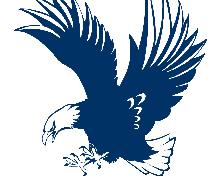
ENYA CEA-LAVIN Sports Editor
Men’s Soccer (5-5)
Sept. 27 at Messiah University (2-0)
Oct. 4 vs. Christopher Newport
Oct. 8 vs. Shenandoah University
Oct. 11 at Salisbury University
Women’s Soccer (7-1-1)
Sept. 27 at Hood College (2-0)
Oct. 4 at John Hopkins University
Oct. 8 vs. Dickinson College
Oct. 11 at Franklin and Marshall College
Volleyball (4-13)
Sept. 27 vs. Washington and Lee University (1-3)
Sept. 27 vs. Gettysburg College (0-3)
Oct. 3 at Messiah University
Oct. 4 at Stevenson University
Oct. 8 at Randolph-Macon College
Men’s Rugby (0-2)
Sept. 20 vs. Mount St. Mary’s (20-33)
Oct. 4 vs. Army
Women’s Rugby (3-1)
Sept. 27 at William and Mary (5-29)
Oct. 4 vs. University of Maryland (2-0) forfeit
Field Hockey (5-4)
Sept. 27 at Stevenson University (1-4)
Oct. 4 vs. Rhodes College Oct. 11 at Meredith College
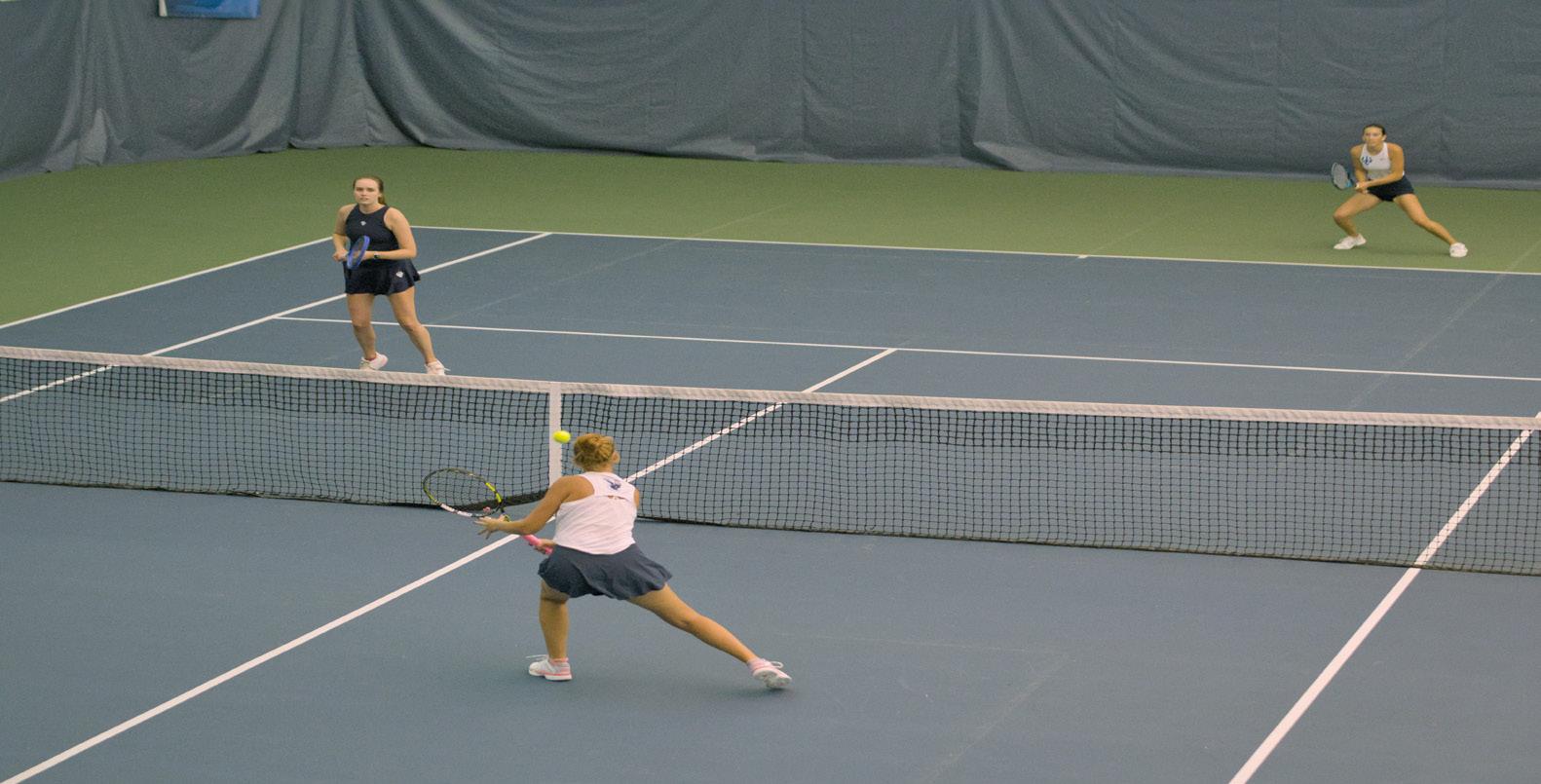

Games are available to watch via livestream on the UMW Athletics webpage www.eagles.com/composite